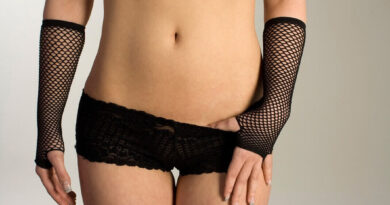Jewelry Allergies: How to Know If You Suffer from Them and What to Do If The Allergy Strikes
It’s a sad fact of life that some people suffer from allergies that can be triggered by their jewelry. It can take a while to identify the cause of the irritation, especially if the reaction is mild. While, in some cases, this could mean that the sufferer has to be very selective about the type of jewelry they wear – or avoid all jewelry altogether- there may be ways to get around your allergy so that you can still rock the accessories you want to.
Allergies should always be taken seriously, and where you have had a reaction or suspect you’ve suffered one, it’s important to talk to your doctor or healthcare professional for advice. In the meantime, keep reading to find out how to know whether you may have an allergy to your jewelry and, if so, what steps to take if you experience a reaction.
Table of Contents
Symptoms of a Jewelry Allergy
If you are allergic to the metal (or other material) that your jewelry is made of, then you’ll be most likely to notice symptoms that include itching, redness, and a rash on or near the part of the skin that was in contact with the jewelry. You may also experience dry patches of skin, swelling, and blisters.
As noted above, it’s important to get any potential allergic reaction checked out by a medical professional, and if the reaction is severe, seek help immediately.
What Causes the Reaction?
While it’s possible for people to be allergic to metals such as silver, gold, etc., by far the biggest offender when it comes to a jewelry allergy is nickel.
The metal nickel is regularly used as a base metal in cheap jewelry, which is then covered in silver or gold; so, you may think you have been having a reaction to a pair of gold earrings when in fact, your allergy is being triggered by the nickel present in them.
Copper, stainless steel, and brass can also trigger an allergic reaction and are also used in the manufacturing of metal alloys: which means that they may be present in your jewelry and cause you an issue.
Read: Benefits of Wearing Gemstone Jewelry
What to Do to Ease the Symptoms?
If an item of jewelry that you’re wearing has caused a reaction, then remove it straight away, and don’t be tempted to switch it for another item – give your skin some time to recover. This is especially true in the case of earrings.
In the case of a mild reaction, consider applying a non-perfumed moisturizer or calamine lotion to the affected area; aloe vera may help soothe the skin, too. If the reaction is more severe, then it may be best to see your doctor, who will probably prescribe cortisol cream or even steroids to resolve the problem.
How to Avoid a Flare Up
If nickel is the culprit – as it is in most cases – then taking steps to avoid wearing this metal is vital. As mentioned above, you may still be able to wear gold jewelry; the higher the karat of gold, the purer the jewelry is; this means that there is much less nickel present in a gold necklace that’s 18 karat gold compared to one that’s 14 karat gold, and so you may find you can wear the former without problems.
If you have a copper allergy, then avoiding rose gold is best, as it often contains this metal and so could bring on a reaction.
Silver, titanium, and platinum jewelry are also good choices, as jewelry made from these metals usually has little – or no – nickel. You could also consider adding plastic covers to nickel earrings to help avoid a flare-up or having favorite pieces of jewelry coated with a metal that’s less likely to cause you a problem – although this will have to be redone regularly.
Other Types of Jewelry Reaction
It’s not just allergic reactions that jewelry can cause. Irritant reactions can also happen and are fairly common among those who suffer from sensitive skin or atopic eczema, and a tight bracelet, watch strap, or necklace can bring on a bout of vitiligo or psoriasis.
Piercings can also become infected – especially if the proper after-care isn’t taken following the initial piercing procedure; look out for discharge and crusting at the site and seek medical advice if you notice these things.
The Outlook
If you think or know that you suffer from a jewelry allergy, then there are steps you can take that’ll allow you to continue to wear some of your favorite types of accessories. These include avoiding gold or silver plated items, choosing the highest karat of gold possible when selecting an item of jewelry if you have a nickel allergy, or opting for sterling silver instead of rose gold if you suffer from a copper allergy.
You could also take the opportunity to try out other styles of jewelry, such as bracelets or necklaces made with pearls, crystal chips, or other natural elements. Or if you have a really special event coming up – perhaps you’re getting married, or have a big black-tie ‘do’ on the horizon, then you could also consider having an item of jewelry custom made so that you know exactly what it’s comprised of.
Recommended Articles:
Ways to Make Your Women’s Tops Look Amazing
Ways to Customize Clothes at Your Home




